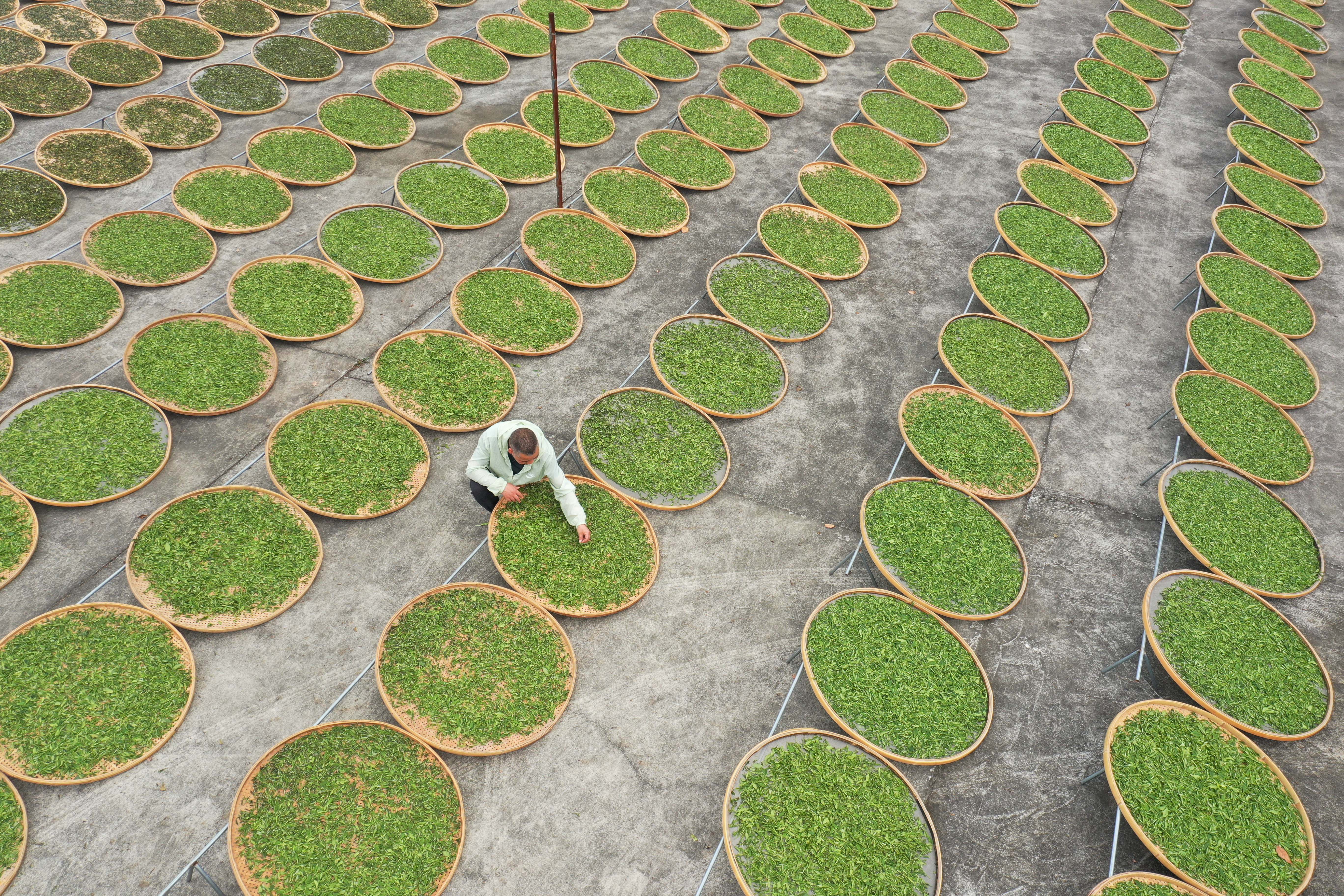World's 1st inactivated COVID-19 vaccine produces antibodies
The Phase I/II clinical trials of the world's first inactivated COVID-19 vaccine, developed by Wuhan Institute of Biological Products under the China National Biotec Group (CNBG) affiliated to the China National Pharmaceutical Group (Sinopharm), produced antibodies in every participant, it was announced on Tuesday.
According to a meeting held simultaneously in Beijing and Henan province on Tuesday, the clinical trial results showed that the vaccination was safe without any serious adverse reaction, and after different procedures and different doses of vaccination were adopted, participants in the vaccine group all produced high titers of antibodies.
People who received two doses of the vaccine at an interval of 28 days, saw their neutralizing antibody positive conversion rate reach 100%.
According to CNBG, the Phase I/II clinical trials were randomized, double-blind, placebo-controlled clinical studies. On April 12, the vaccine obtained the world's first clinical trial approval, and Phase I/II clinical trials were then launched in Wuzhi county of Henan province.
Under the leadership and guidance of the Henan Center for Disease Control and Prevention, the clinical trials were conducted for 66 consecutive days and obtained data on the safety and efficacy of the COVID-19 inactivated vaccine after the administration of the two injections. The data presented research results on different ages, different procedures, different doses, and different injection times in a relatively comprehensive manner. This is also so far the clinical COVID-19 vaccine research that has the longest time span, produces the most comprehensive data and obtains the best research results, thus providing scientific and evaluable data for epidemic prevention and control as well as emergency use.
CNBG said the study was designed to evaluate the safety and immunogenicity of the COVID-19 inactivated vaccine in healthy subjects aged from 18 to 59 for low, medium and high dosages and injections at intervals of 14, 21 and 28 days.
The study focused on the changes in cellular immunity after vaccination and explored vaccination procedures, immunization dosage, safety, immunogenicity and changes in antibody levels in vivo. Up to now, all the 1,120 subjects that took part in the Phase I/II clinical studies have completed two injections.
For those aged 18 - 59 who received two medium-dose injections through the 14-day and 21-day interval procedures, they had a neutralizing antibody positive conversion rate of 97.6%.
For those who received two medium-dose injections at an interval of 28 days, the neutralizing antibody positive conversion rate reached 100%.
In response to recent new cases in Beijing and the discovery of a new genotype of the virus through whole-genome sequencing, some experts worry that for the new genotype, "the vaccine may weaken or even not work".
However, Yang Xiaoming, chief scientist of the national "863 Program" vaccine project and chairman of CNBG, told Science and Technology Daily he had noticed the new genotype, but it is "still within the coverage of the vaccine whose Phase I/II unblinding occurred today", so it will not affect the effectiveness of the current inactivated vaccine.
CNBG also said that it is now actively developing overseas cooperation in the Phase III clinical research and has confirmed cooperative intentions with companies and institutions in various countries. It has completed building a high biosafety grade production workshop, which is currently the only COVID-19 vaccine production workshop in the world meeting the requirements of biosafety and GMP standards and capable of meeting the needs of widespread emergency vaccination.
(You can also read it at: http://www.china.org.cn/china/2020-06/22/content_76190287.htm)

